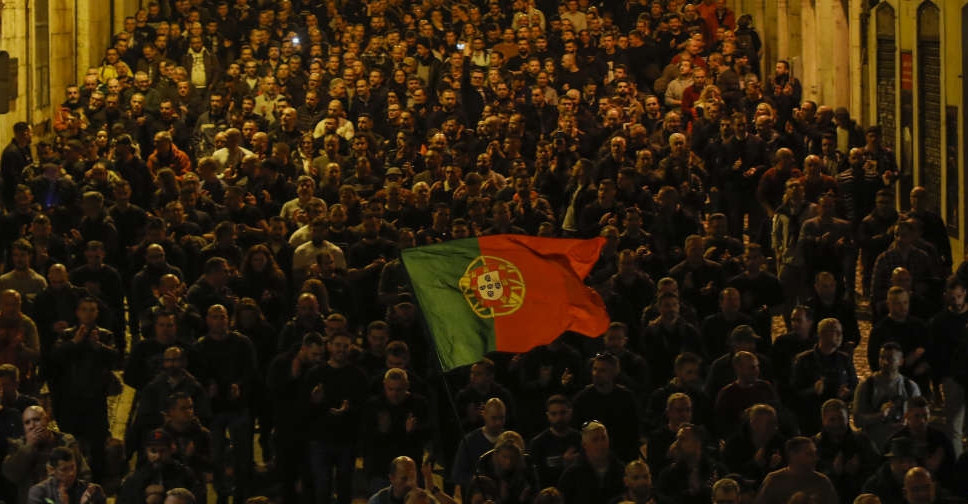
Thousands of off-duty police officers in plain clothes on Wednesday protested in Lisbon for better wages, demanding the same increases in hazard pay that the outgoing government recently granted to the criminal investigation police (PJ).
In late November, after Prime Minister Antonio Costa's resignation but while he still had full powers to make long-term decisions, the government approved hazard pay rises for the PJ that can reach almost 700 euros per month and are retroactive to January 2023.
Since then, Public Security Police (PSP) officers and members of the National Republican Guard (GNR) - which patrols motorways and rural areas - have held rallies in several cities protesting what they described as discriminatory treatment.
"We demand the same treatment that was given to the PJ (because) it has to do with higher wages," said the head of the SUP police union, Humberto de Carvalho.
He added that members of the PSP and the GNR had "practically the same competences as those of the PJ".
The protesters gathered in a square in downtown Lisbon and started a silent march towards parliament, where they only planned to sing the national anthem.
Interior Minister Jose Luis Carneiro has said the caretaker government can no longer decide on wage increases and that it would be up to the next administration emerging from the March 10 election to "assume new budgetary responsibilities".
Police union association ASPP said on Tuesday that the average hazard pay in the PSP was currently between 380 and 420 euros per month, while in the PJ it has reached 1,000 euros.
In a statement on Friday, President Marcelo Rebelo de Sousa said that professionals from the GNR and PSP, as well as from other police forces, must have a compensation regime equivalent to that of the PJ.

 UK inquiry finds 'chilling' cover-up of infected blood scandal
UK inquiry finds 'chilling' cover-up of infected blood scandal
 Iranian President Raisi killed in helicopter accident, state media says
Iranian President Raisi killed in helicopter accident, state media says
 ICC prosecutor seeks arrest warrants for Israeli, Hamas leaders
ICC prosecutor seeks arrest warrants for Israeli, Hamas leaders
 Assange given permission to appeal against US extradition
Assange given permission to appeal against US extradition
 Israel intends to broaden Rafah sweep, Defence Minister tells US
Israel intends to broaden Rafah sweep, Defence Minister tells US




